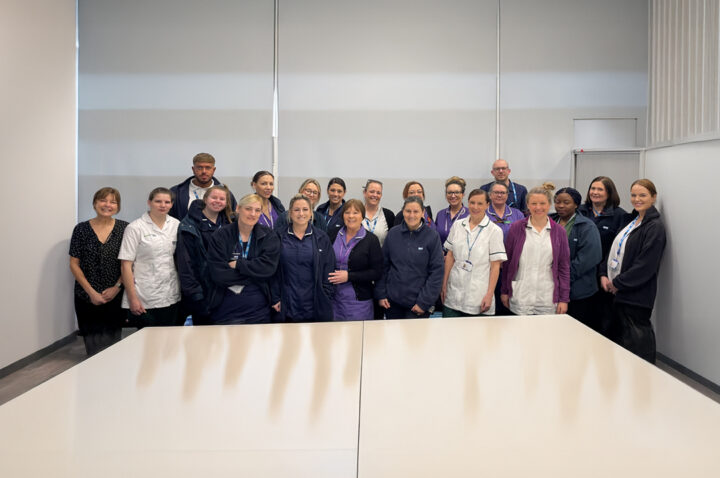Hospital at Home – New Wards

Summary
Northumbria Healthcare NHS Foundation Trust has expanded its Hospital at Home model to include new wards for Heart Failure, Lung Oncology, Trauma & Orthopaedics, and General Surgery. In 2024/25, 1,420 patients received hospital-level care safely in their own homes. Daily face-to-face assessments are supported by innovations such as elastomeric pumps, advanced digital prescribing, and remote multidisciplinary consultations. This approach combines acute and community expertise to deliver coordinated, high-quality care, improving patient experience, reducing hospital admissions, and supporting efficient use of resources while maintaining clinical excellence outside traditional hospital settings.
The Challenge
The Trust needed to relieve pressure on acute hospital beds across four specialties, where many patients were clinically stable but required ongoing monitoring, IV therapy, or post-operative care. These patients often stayed in hospital for two weeks or more, despite not being acutely unwell. The challenge was to create safe pathways to deliver this care in the community, improving patient flow and reducing admissions while ensuring safety, quality, and patient experience were not compromised.
The Solution
Pathways were redesigned to support patients at home through a highly collaborative process. Consultants, clinical leads, senior managers, pharmacists, therapists, nurses, IT specialists, medical electronics, supplies, and porters all contributed to addressing practical and clinical challenges. Patient representatives shaped decisions from the outset, with a Plan–Do–Study–Act approach allowing iterative testing and refinement. Best practices from other Trusts were explored and adapted, ensuring the service was evidence-based and sustainable. The result was the creation of Hospital at Home wards that deliver daily reviews and comprehensive access to therapy, pharmacy, and medical support in patients’ own homes.
Results & Next Steps
Since launch, more than 1,600 patients have benefited from the service. Feedback has been overwhelmingly positive, with patients describing improved independence and reduced disruption for carers. One patient shared, “I am the sole carer for my wife, who has dementia. Being able to have my treatment at home stopped her going into care – I feel better at home.” In Lung Oncology, emergency admissions for newly diagnosed patients have fallen significantly, and direct admission pathways now bypass Emergency Departments, easing pressure and improving the patient journey. Staff morale has improved, with stronger collaboration between acute and community teams. Externally, the Heart Failure ward has been featured in The Times, the Lung Oncology ward won the Bright Ideas in Health Award, and the Trust hosted a national Virtual Ward Conference. As a pilot site for NHS England’s mandatory virtual ward data set, the service is contributing to shaping national policy. Next steps include continued evaluation, wider rollout, and sharing learning to strengthen practice across the NHS.




